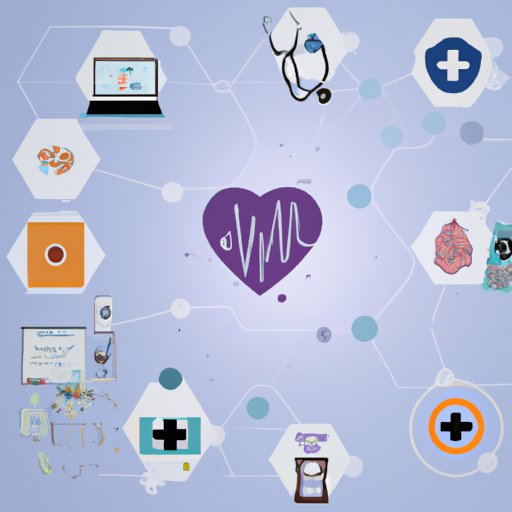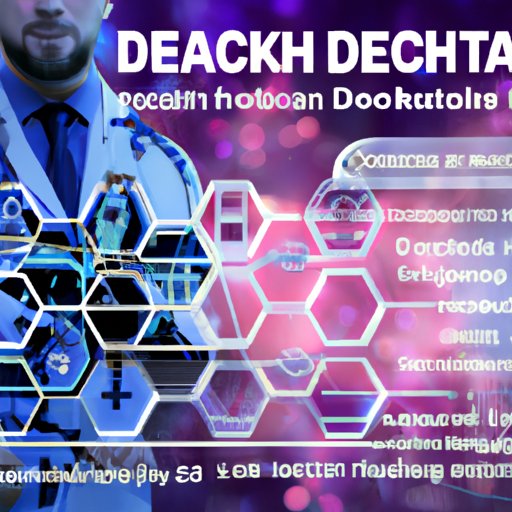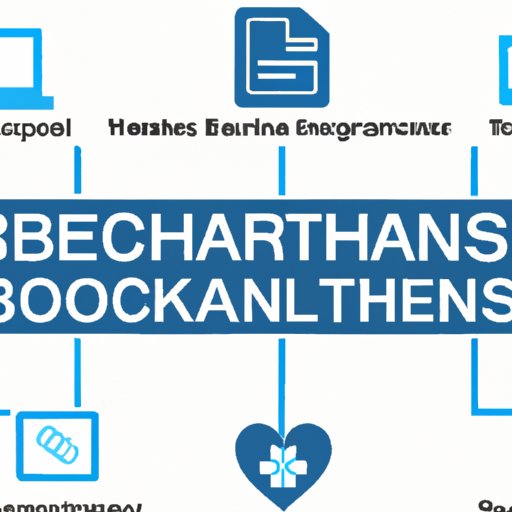Introduction
Blockchain technology is revolutionizing the way we interact with data. By providing a secure, decentralized platform for storing and sharing data, blockchain offers numerous potential applications across multiple industries. One area where blockchain is particularly well-suited is healthcare, where it can be used to improve patient care, enhance data security, and streamline medical records management. In this article, we will explore the potential benefits of blockchain technology in healthcare, as well as the challenges and opportunities of implementing it.

The Role of Blockchain in Enhancing Patient Care
By leveraging blockchain technology, healthcare organizations can improve patient care in several ways. First, blockchain can provide patients with improved access to their medical records. According to a study by the University of Cambridge, “blockchain technology could potentially enable secure, real-time access to a patient’s medical history and health information.” This would allow doctors to make more informed decisions about a patient’s treatment, leading to better outcomes.
In addition, blockchain can increase transparency and security in healthcare. By using blockchain-based systems, healthcare organizations can ensure that patient data is accurately recorded and securely stored. As the University of Cambridge study notes, “the use of distributed ledger technology (DLT) could help to protect against unauthorized access to patient data, reducing the risk of data breaches.”
Finally, blockchain can improve efficiency in patient care. By utilizing blockchain-based systems, healthcare organizations can streamline administrative processes, reduce paperwork, and speed up the delivery of care. This could lead to improved patient experience, as well as cost savings for healthcare providers.

Harnessing the Power of Blockchain to Improve Data Security in Healthcare
Blockchain technology can also be used to improve data security in healthcare. By utilizing blockchain-based solutions, healthcare organizations can improve data storage and management, enhancing privacy protection and reducing the risk of fraudulent activity. For example, blockchain-based solutions could be used to create secure digital identities for patients, ensuring that only authorized individuals have access to sensitive information.
In addition, blockchain-based solutions can be used to create immutable records of patient data. This would ensure that data is accurate, reliable, and tamper-proof. Furthermore, blockchain-based systems could be used to track the movement of patient data, providing an audit trail that would make it easier to detect and prevent malicious activity.
How Blockchain is Transforming the Health Industry
Blockchain is also transforming the healthcare industry in other ways. For example, blockchain can be used to streamline claims processing, improving accuracy and reducing costs. According to a report from Deloitte, “by eliminating manual processes, blockchain technology could reduce the time required to process claims from days or weeks to minutes.” This could lead to significant cost savings for healthcare providers.
In addition, blockchain can be used to improve clinical trial management, allowing researchers to securely store and share data in real time. This could lead to faster and more efficient trials, resulting in new treatments being developed at a faster rate.
Finally, blockchain can be used to enhance supply chain management, allowing healthcare organizations to track the movement of drugs and medical supplies from manufacturer to patient. This could help to reduce errors and improve safety, as well as ensuring that patients receive the medications they need.
What are the Challenges and Opportunities for Implementing Blockchain in Healthcare?
While there are numerous potential benefits to utilizing blockchain in healthcare, there are also some challenges and opportunities that must be considered. The first challenge is regulatory compliance. As noted by a report from PwC, “healthcare organizations must ensure they are compliant with relevant laws and regulations when implementing blockchain-based solutions.” This could involve changes to existing policies and procedures, as well as additional training for staff.
In addition, the cost of implementation must be considered. While the long-term cost savings associated with blockchain-based solutions may be considerable, there will be an initial cost associated with setting up and maintaining the system. Therefore, healthcare organizations must carefully weigh the potential benefits against the cost of implementation.
Finally, there may be resistance to change from within the organization. As noted by the PwC report, “employees may be hesitant to adopt new technologies, particularly if they require significant changes to existing workflows.” Therefore, healthcare organizations must be prepared to address any concerns and ensure that staff are adequately trained on how to use the new systems.

Using Blockchain to Streamline Medical Records Management
By leveraging blockchain technology, healthcare organizations can also improve medical records management. By utilizing blockchain-based solutions, healthcare providers can improve the accuracy and reliability of data, as well as increase the speed of record retrieval. Additionally, blockchain-based solutions can be used to improve interoperability between systems, allowing for easier data sharing and collaboration.
Exploring Regulatory Considerations for Blockchain in Healthcare
When implementing blockchain-based solutions in healthcare, organizations must also consider regulatory considerations. They must ensure that their systems comply with relevant laws and regulations, such as HIPAA and GDPR. In addition, they must ensure that patient privacy is protected, and establish standards for data storage and security.
Conclusion
Blockchain technology has the potential to revolutionize the healthcare industry, offering numerous potential benefits for patient care, data security, and medical records management. However, there are also some challenges and opportunities that must be considered, such as regulatory compliance, cost of implementation, and overcoming resistance to change. By understanding these challenges and opportunities, healthcare organizations can successfully implement blockchain-based solutions and reap the many potential benefits.
(Note: Is this article not meeting your expectations? Do you have knowledge or insights to share? Unlock new opportunities and expand your reach by joining our authors team. Click Registration to join us and share your expertise with our readers.)
